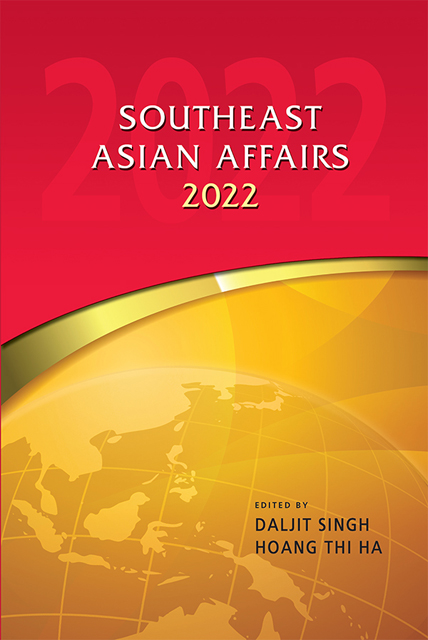The Philippines in 2021: The Decline of the House of Duterte?
Published online by Cambridge University Press: 01 September 2023
Summary
What a difference a year makes. At the beginning of 2021, Philippine president Rodrigo Duterte seemed nearly invincible: four and a half years into his single, six-year term, one could plausibly speculate that he would be able to exercise considerable influence over the succession process and install his own “anointed” candidate as the next president of the republic in the May 2022 elections. This would go against the usual pattern in Philippine politics, whereby governing coalitions start to splinter as elections approach and the leader is unable to satisfy all those who have earlier joined his or her camp. Duterte, arguably, might have been different. Throughout his time in office, ever since his meteoric rise from his Davao City mayoral post to the presidency in 2016, Duterte had effectively used a combination of mass appeal, strongman tactics and patronage not only to keep most of his coalition intact—but also to expand it. He had also shown himself to be the “Teflon populist”, with his popularity riding high even amidst the corruption scandals, infighting and incompetence that surrounded him. Maybe, just maybe, Duterte’s combination of charisma and coercion would enable him to buck the historical trends.
Most likely, it seemed in early 2021, Duterte would be able to engineer his replacement by either his daughter, Sara Duterte-Carpio (who had succeeded him as mayor of Davao City), or by his trusted special assistant Christopher “Bong” Go (elected to the Philippine Senate, with Duterte’s strong endorsement, in 2019). By the end of 2021, Duterte remained immensely popular, with 72 per cent approval, thus retaining his long streak of high survey ratings. But he had, quite clearly, squandered much of his influence over the process by which the next president was to be chosen. In the latter months of the year, very deep (and very public) intra-familial splits threatened the long-term viability of the House of Duterte. If the family’s national-level power is to re-emerge at some point in the future, it will quite likely be with the father out of the picture and the daughter at the helm.
- Type
- Chapter
- Information
- Southeast Asian Affairs 2022 , pp. 271 - 292Publisher: ISEAS–Yusof Ishak InstituteFirst published in: 2023



